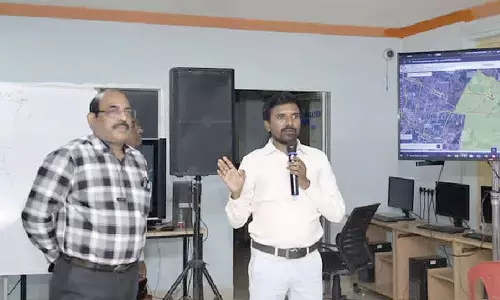How health-tech start-ups are changing healthcare dynamics

Representational image
A new generation of medical technology companies are developing unique technology and specialised, patented products to address universal healthcare concerns
The entry of start-ups into the market for medical technology has changed how medical equipment companies operate. To compete with traditional market participants, start-ups are combining digital solutions with novel hardware. Following the Covid-19 outbreak, start-ups developed revolutionary business models to transform the healthcare industry.
Start-ups have partnered with tech businesses or are developing a product that is dynamic and focuses on user-friendly wearables. Various start-ups are developing stand-alone digital solutions to assist people in managing their health concerns. Companies are increasing their visibility in the Indian market. All of these innovative solutions are integrated with accessible and unique pricing methods to pique the interest of purchasers. New-age firms are to be credited for the transition from hardware-centric products to integrated solutions, which has forced incumbent medical equipment companies to reconsider their business models.
Technologies are more focussed on diagnosis and detection, particularly around testing. The number of start-ups in point-of-care goods has increased dramatically. Companies are also concentrating on genomics/sequencing to provide breakthrough and cost-effective genetic diagnostics and personalized solutions. Less than 20 years ago, genome sequencing cost lakhs of rupees, but it is now generally accessible for less than 5000.
The Indian Medical technology business is still dominated by imports, with most enterprises relying on foreign products. However, these new-age enterprises are now bringing in new products with a core concentration on "India-based production" that competes on profitability with MNCs. A new generation of medical technology companies are developing unique technology and specialised, patented products to address universal healthcare concerns.
Innovative approaches to treatment and post-acute care management are being developed. Start-ups are creating businesses based on cutting-edge technology such as artificial intelligence and machine learning. Electrical, mechanical engineering, and product design expertise are combined to develop products and solutions for their portfolios that address the entire patient journey—from diagnosis through rehabilitation. These start-ups are motivated by deliberate innovation that addresses specific difficulties and opens new commercial prospects for the Indian healthcare system.
Patient care is likewise moving away from the typical hospital setting. At-home care, self-administered tests such as the Covid Antigen Rapid Home test, portable clinics, and remote monitoring are becoming priorities for new-age enterprises. The vast majority of diagnostic businesses are developing goods for point-of-care applications.
Emerging technologies bring new opportunities for healthcare professionals and suppliers while also empowering patients. Medical technology is becoming smarter as a result of increased technology and study. One of the variables that are in more demand is personalization, which is an expectation that Medtech companies must meet. Furthermore, healthcare organizations capitalize on this demand by enhancing treatment and preventive models and merging them with connected devices to fulfil the needs of patients. As the supply chain recognizes these shifting perspectives, the necessity for innovation becomes evident.
As we can see, healthcare is shifting away from the traditional concept of treating diseases and illnesses. New-age businesses are focusing on well-being and disease detection, prevention, and treatment. This is good news for Medical technology businesses because illness diagnosis and prevention will most likely rely on regulated, wearable, user-centric, sensor-driven medical devices, resulting in the growth of the new medical technology market. Because so much core innovation is being done in these areas, healthcare delivery is becoming an integral aspect of the care itself. As people expect connected ecosystems where patients can access care through virtual and retail channels, as well as at home, medical technology firms may experience substantial changes in the future. The experience and products of start-ups are forcing Medical technology firms to shift from episodic treatment to enhancing and maintaining the well-being of all.
(The author is the CEO, LivLong)








